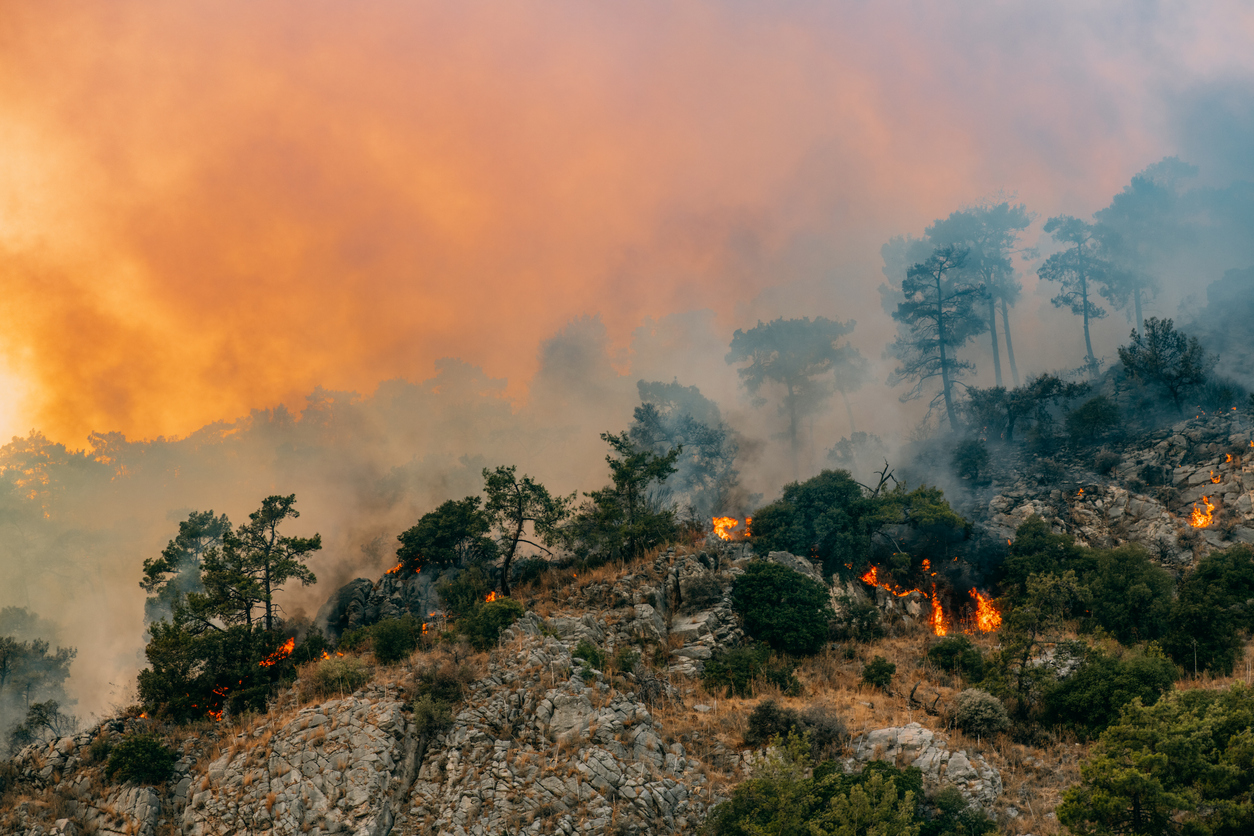World unlikely to meet climate goals despite advances in green tech, UN report finds


A free daily email with the biggest news stories of the day – and the best features from TheWeek.com
You are now subscribed
Your newsletter sign-up was successful
The goal of limiting global warming to 2.7 degrees Fahrenheit — or 1.5 degrees Celsius — is likely out of reach, according to a new United Nations climate report released Monday.
The New York Times reported that humans have already increased global temperatures by an average of 1.1 degrees Celsius since the beginning of the Industrial Revolution.
"Holding warming to just 1.5 degrees Celsius," the Times notes, "would require nations to collectively reduce their planet-warming emissions roughly 43 percent by 2030," an unlikely outcome given that "current policies ... are only expected to reduce global emissions by a few percentage points this decade."
The Week
Escape your echo chamber. Get the facts behind the news, plus analysis from multiple perspectives.

Sign up for The Week's Free Newsletters
From our morning news briefing to a weekly Good News Newsletter, get the best of The Week delivered directly to your inbox.
From our morning news briefing to a weekly Good News Newsletter, get the best of The Week delivered directly to your inbox.
Last year, a report in the Lancet medical journal compiled by over 100 doctors and health experts concluded that climate change is "the greatest global health threat facing the world in the 21st century," driving increases in heat deaths, insect-borne diseases, flooding, and wildfires.
Per the Times, the assessment, which was compiled by 278 experts from 65 countries and approved by 195 governments, also offers glimmers of hope by acknowledging the rapid growth of green technology and the slower growth rates of global fossil fuel emissions.
Writing for The Week last year, columnist Samuel Goldman despaired over the idea of international climate negotiations making a substantive difference, writing they "are based on a deeply naive understanding of collective action."
"Apart from the legal dimensions of sovereignty, there is no global agency capable of forcing recalcitrant states to accept obligations they don't choose or enforcing those they fail to meet. Australia won't be invaded because it refused a symbolic commitment to ending coal production," Goldman wrote.
A free daily email with the biggest news stories of the day – and the best features from TheWeek.com
Grayson Quay was the weekend editor at TheWeek.com. His writing has also been published in National Review, the Pittsburgh Post-Gazette, Modern Age, The American Conservative, The Spectator World, and other outlets. Grayson earned his M.A. from Georgetown University in 2019.
-
 What to know before filing your own taxes for the first time
What to know before filing your own taxes for the first timethe explainer Tackle this financial milestone with confidence
-
 The biggest box office flops of the 21st century
The biggest box office flops of the 21st centuryin depth Unnecessary remakes and turgid, expensive CGI-fests highlight this list of these most notorious box-office losers
-
 What are the best investments for beginners?
What are the best investments for beginners?The Explainer Stocks and ETFs and bonds, oh my
-
 How climate change is affecting Christmas
How climate change is affecting ChristmasThe Explainer There may be a slim chance of future white Christmases
-
 Blue Origin launches Mars probes in NASA debut
Blue Origin launches Mars probes in NASA debutSpeed Read The New Glenn rocket is carrying small twin spacecraft toward Mars as part of NASA’s Escapade mission
-
 Why scientists are attempting nuclear fusion
Why scientists are attempting nuclear fusionThe Explainer Harnessing the reaction that powers the stars could offer a potentially unlimited source of carbon-free energy, and the race is hotting up
-
 Dinosaurs were thriving before asteroid, study finds
Dinosaurs were thriving before asteroid, study findsSpeed Read The dinosaurs would not have gone extinct if not for the asteroid
-
 Canyons under the Antarctic have deep impacts
Canyons under the Antarctic have deep impactsUnder the radar Submarine canyons could be affecting the climate more than previously thought
-
 SpaceX breaks Starship losing streak in 10th test
SpaceX breaks Starship losing streak in 10th testspeed read The Starship rocket's test flight was largely successful, deploying eight dummy satellites during its hour in space
-
 NASA is moving away from tracking climate change
NASA is moving away from tracking climate changeThe Explainer Climate missions could be going dark
-
 Rabbits with 'horns' sighted across Colorado
Rabbits with 'horns' sighted across Coloradospeed read These creatures are infected with the 'mostly harmless' Shope papilloma virus
